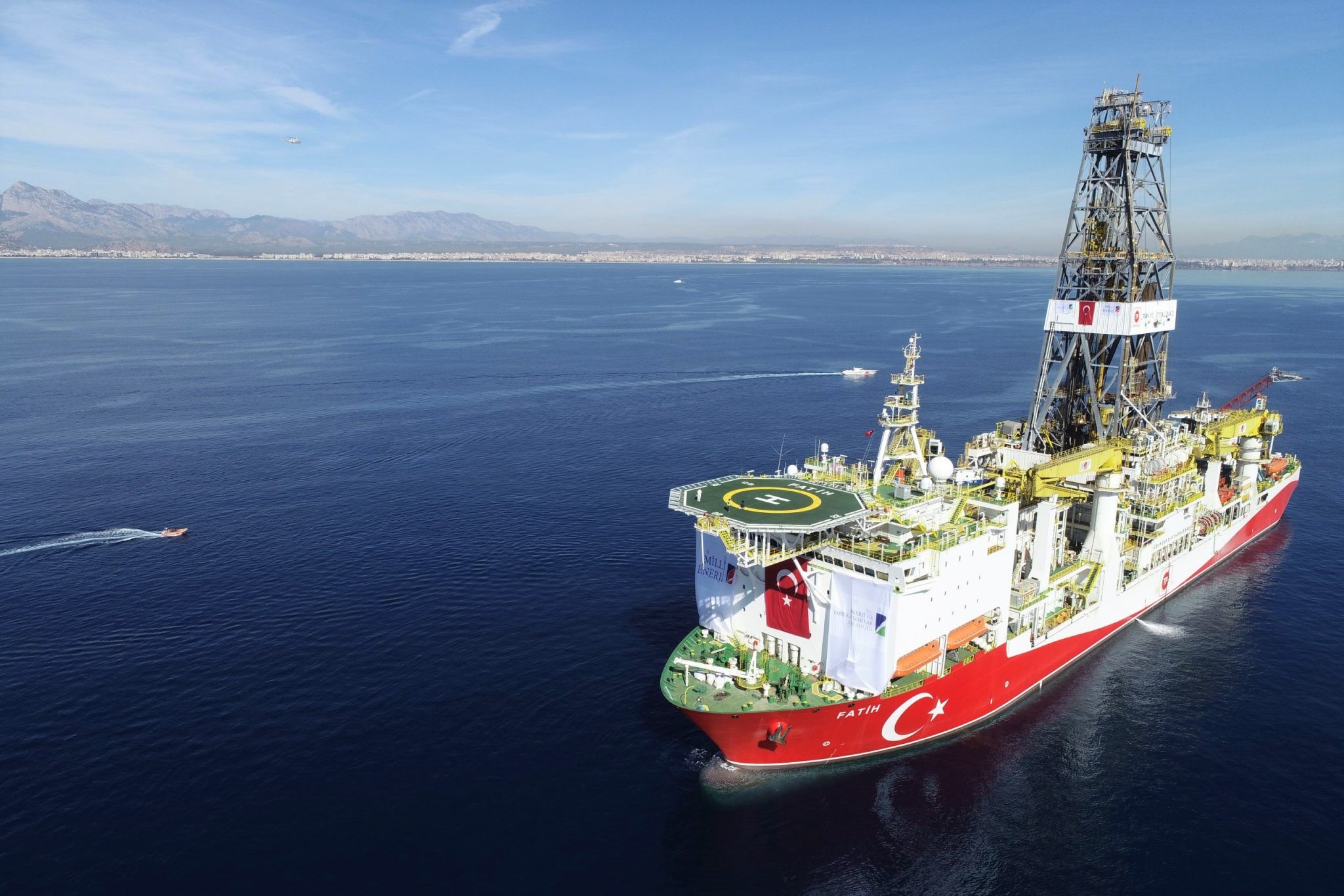
Cyprus Problem: Environmental Challenges and Energy Security”, which was held for the third time this year, hosted by the Near East University Faculty of Civil and Environmental Engineering, was held with intense participation. The international conference, which was held with the support of 40 universities from around the world, brought together nearly 200 participants consisting of scientists, politicians, bureaucrats, retired generals/admirals and energy experts. In the conference, which was held for the third time this year, important issues related to the energy security problems in the Eastern Mediterranean, the interrelationship between the political economy of energy security and national/international security, and the role of the Turkish Republic of Northern Cyprus in this respect were discussed.
Representatives from many countries such as the USA, China, Russia, Israel, Canada, England, France, Azerbaijan, Lebanon, Libya, South Africa, Pakistan, Algeria, Iran, United Arab Emirates, Croatia and Indonesia, especially Turkey and the TRNC attended the conference. The opening speeches of the international conference were made by TRNC President Ersin Tatar, Deputy Minister of Environment and Urbanization of the Republic of Turkey Mücahit Demirtaş, Head of Turkish Maritime and Global Strategies Center Retired Admiral Assoc. Prof. Dr. Cihat Yaycı, Former Deputy Minister of Agriculture and Forestry Akif Özkaldı, President of Turkey-Azerbaijan Friendship Cooperation and Solidarity Foundation and Member of Turkish Presidency Security and Foreign Policy Board Prof. Dr. Aygün Attar, President of TRNC Information Technologies and Communications Department Kadri Bürüncük, Chairman of Union of Chambers of Cyprus Turkish Engineers and Architects Tunç Adanır, President of Turkish Chamber of Geological Engineers Hüseyin Alan, President of Cyprus Turkish Energy Efficiency Association Görkem Çelik, Energy Policy Expert Necdet Pamir and Near East University Dean of the Faculty of Civil and Environmental Engineering Prof. Dr. Hüseyin Gökçekuş. The closing speeches of the conference were delivered by TRNC President Ersin Tatar and TRNC Minister of Economy and Energy Olgun Amcaoğlu. Also at the closing, Conference President Prof. Dr. Hüseyin Gökçekuş shared the final declaration of the conference with the participants.
At the conference, which was attended by many people consisting of scientists, politicians, bureaucrats, retired generals, admirals and energy experts, an important vision study was carried out by looking at current energy and environmental problems from a broad perspective with a focus on the Eastern Mediterranean and the TRNC.
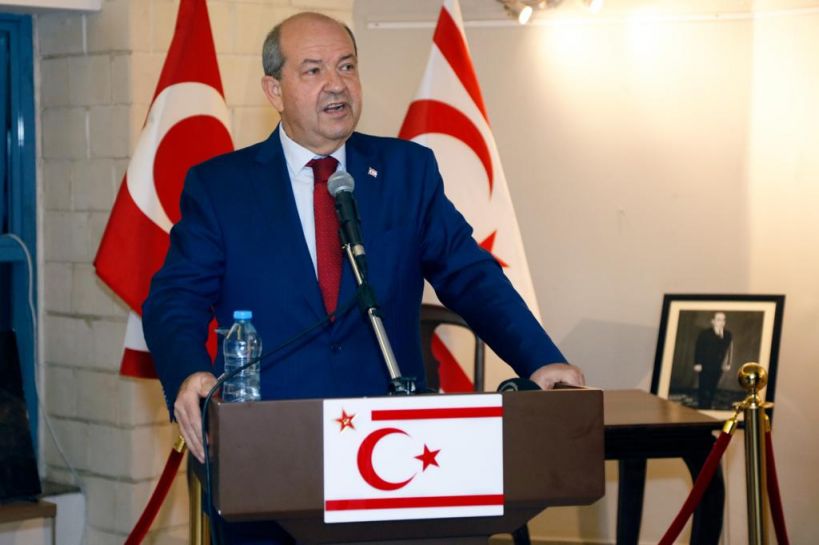
TRNC President Ersin Tatar: “What the world calls the Cyprus problem is essentially a struggle for sovereignty.”
Expressing that important issues related to the environment and energy were discussed at the “Cyprus Problem: Environmental Challenges and Energy Security” conference, which lasted for three days at the Near East University, TRNC President Ersin Tatar emphasized that what the world calls the Cyprus problem is essentially a struggle for sovereignty. Referring to the history of the political struggles in Cyprus, President Tatar said, “Turkish Cypriots had to establish their own state after the terrific incidents caused by the Greeks.”
Emphasizing the restructuring of global balances and international relations in the world after the Russia-Ukraine war, President Tatar said, “Due to its geopolitical and geoeconomic location and its natural gas potential, the island of Cyprus has increased its importance, and the TRNC has become one of the main actors in the region. As the Turkish Republic of Northern Cyprus, we work together with our homeland and guarantor country Turkey to protect Turkish interests in the region. Tatar added, “We see that the Greek Cypriot side has made many agreements with large international companies in line with the argument that the energy resources in the seas around the island of Cyprus belong to a recognized state. According to the 1960 Agreement, we have equal rights and sovereignty with the Greek Cypriots. For this reason, we also have the right to search together with the motherland Turkey.”
President Ersin Tatar concluded his words by saying, “I would like to thank the Near East University for organizing this important conference where developments in the region and the world are discussed from a new perspective.”
Olgun Amcaoğlu: “We have to take some steps such as strategic energy plan, export strategy action plan and industrial strategy action plan.”
Speaking at the closing of the “Cyprus Problem: Environmental Challenges and Energy Security Conference”, TRNC Economy and Energy Minister Olgun Amcaoğlu said, “As the Minister of Economy and Energy, I am delighted to participate in this comprehensive and wide conference and provide information on energy security.”
Referring to the pandemic period and the recent Ukrainian-Russian War, Minister Amcaoğlu said that the negative events had some negative consequences. Talking about the energy summit they attended in Antalya, Minister Amcaoğlu said, “The steps we take in cooperation with the Republic of Turkey after the struggle in the middle of the Eastern Mediterranean and the thoughts we put forward for the Blue Homeland will yield good results.”
Talking about the TRNC Drinking Water Supply Project, Minister Amcaoğlu said, “The TRNC Drinking Water Supply Project, which is the project of the century, and all the projects that will be implemented at the energy issue after this point, have increased the importance of the TRNC one more time together with the Republic of Turkey. As Atatürk stated in 1937, it is unacceptable for the Republic of Turkey that the Turkish people living on the TRNC experience hardship and the supply routes are closed.” Minister Amcaoğlu said, “We must be able to shape our country’s energy supply security correctly and, knowing that there will be no production with fossil wastes after 2030, we must act by ensuring our own security of supply and fulfilling the conditions of being interconnected with the Republic of Turkey. We are one of the lucky countries in the world. We see the sun for 333 days. We have the opportunity to produce our own energy by reducing the cost. We are working and producing with all our strength in this issue.” Minister Amcaoğlu also added; “As the Ministry, we have completed the work on the establishment of the Energy Department, the work on the Energy Supreme Council, all the legislation on energy efficiency and electric vehicles, and we have sent them to the parliamentary committees”.
In addition, Minister Amcaoğlu stated that some steps should be taken quickly for the demand for energy supply and said, “If we cannot make plans such as strategic energy plan, export strategy action plan and industrial strategy action plan in order to progress quickly and solidly, and make our country a self-sufficient country it is clear that we will become a state which will not be able to meet the needs of itself and of our own people.”
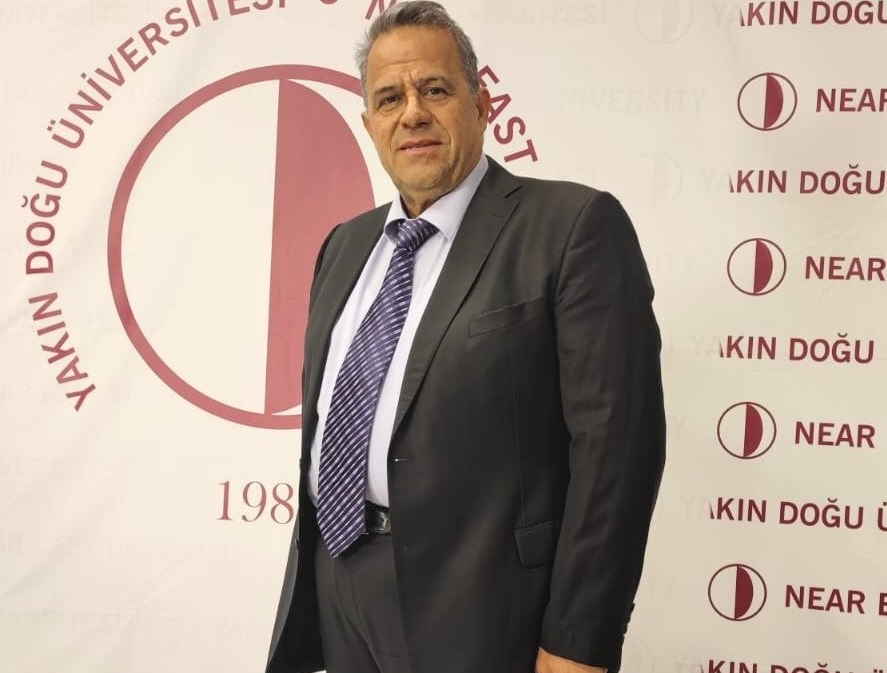
Prof. Dr. Hüseyin Gökçekuş: “Recognition of the land, sea and air sovereignty of the TRNC is essential for the defense of Turkish legal and political rights in the Eastern Mediterranean and is the only way to prevent the expansionist steps that Greece and Southern Cyprus will take.”
Conference President and Dean of the Near East University Faculty of Civil and Environmental Engineering Prof. Dr. Hüseyin Gökçekuş, on the other hand, conveyed the conclusions and recommendations drawn from the presentations and discussions at the conference that lasted for three days. Stating that 80 speakers and over 100 researchers and experts attended the conference hosted by the Near East University, Prof. Dr. Gökçekuş said, “At the conference we organized with the support of more than 40 universities and institutions around the world, we discussed the energy security problems in the Eastern Mediterranean, the mutual relationship between the political economy of energy security and national security, and the role of Turkey and the TRNC.”
Stating that they also evaluated the relationship between climate change and energy scarcity, Prof. Dr. Hüseyin Gökçekuş said that with suggestions to reduce the impact of climate change, very productive discussions have been carried out to find alternative solutions to solve the energy shortage in the Eastern Mediterranean.
Emphasizing that the Eastern Mediterranean has always been considered a rich region in terms of hydrocarbon resources, Prof. Dr. Gökçekuş said “The discovery of gas reserves in the Eastern Mediterranean was met with enthusiastic reactions due to its potential effects on the economic, geopolitical and political balances in the region,” Gökçekuş also said. “The TRNC has a very important role in the Mediterranean region with its strategic location, energy potential, living and non-living resources, and with its position on extremely important trade routes. It is also on a very important route in terms of natural gas. This position has made the TRNC one of the competitive areas of global powers in terms of energy resources.”
Reminding that there have been a series of large-scale energy resource discoveries in the Eastern Mediterranean since 2009, off the coast of Israel, Cyprus and Egypt (Leviathan, Tamar, Aphrodite and Zohr fields), Prof. Dr. Gökçekuş said that one of the important theses emphasized throughout the conference was the “recognition of the land, sea and air sovereignty of the TRNC”. Prof. Dr. Gökçekuş said, “This is essential for the defense of Turkish legal and political rights in the Eastern Mediterranean and is the only way to prevent the expansionist steps that Greece and Southern Cyprus will take.”
Stating that geopolitical tensions clearly remind that energy security continues to be a critical issue in the world, Prof. Dr. Gökçekuş said, “Climate change and energy security are global concerns, and both are routinely featured in public policy discourses around the world. Energy security and climate change are becoming increasingly critical factors influencing policies, regulations and investments in the energy sector. While there are many potential synergies between the two issues, they can also result in conflicting proposals. Climate change directly impacts fuel supply, energy production, as well as the physical resilience of existing and future energy infrastructure. Heat waves and droughts are already putting pressure on existing energy production, making it even more important to reduce fossil fuel emissions. On the other hand, the rapidly growing global energy demand raises concerns about energy supply security and climate change. Although policies that address the two issues sometimes conflict with each other, technology innovation can provide a win-win solution to addressing both issues, particularly in alternative energy.”
Emphasizing that water and energy issues should be handled together, Prof. Dr. Gökçekuş said, “These resources are basically intertwined. While energy is used to secure, transmit, purify and distribute water; water is used to develop, process and transmit energy. Therefore, it is essential that these two issues be addressed together.”
At the end of his speech, Prof. Dr. Gökçekuş thanked all participants and stakeholders of the “Cyprus Problem: Environmental Challenges and Energy Security” conference and emphasized that they carried out a very successful three-day vision study.

Retired Lieutenant General İsmail Hakkı Pekin: “The discovery of energy resources in the Eastern Mediterranean has changed the geopolitical and security dynamics of the region.”
Former Chief of General Staff Intelligence of the Republic of Turkey, retired Lieutenant General İsmail Hakkı Pekin, said, “The discovery of energy resources in the Eastern Mediterranean has changed the geopolitical and security dynamics of the region. The Eastern Mediterranean is increasingly influencing Turkey’s security policies.” Retired Lieutenant General İsmail Hakkı Pekin said, “The Blue Homeland and the Exclusive Economic Zone are very important, and the Turkish Navy has advanced weapon systems in the defense of the Blue Homeland. The most important of these are the Air Defense Frigate, the Air-Independent submarine and the TCG Anadolu.”
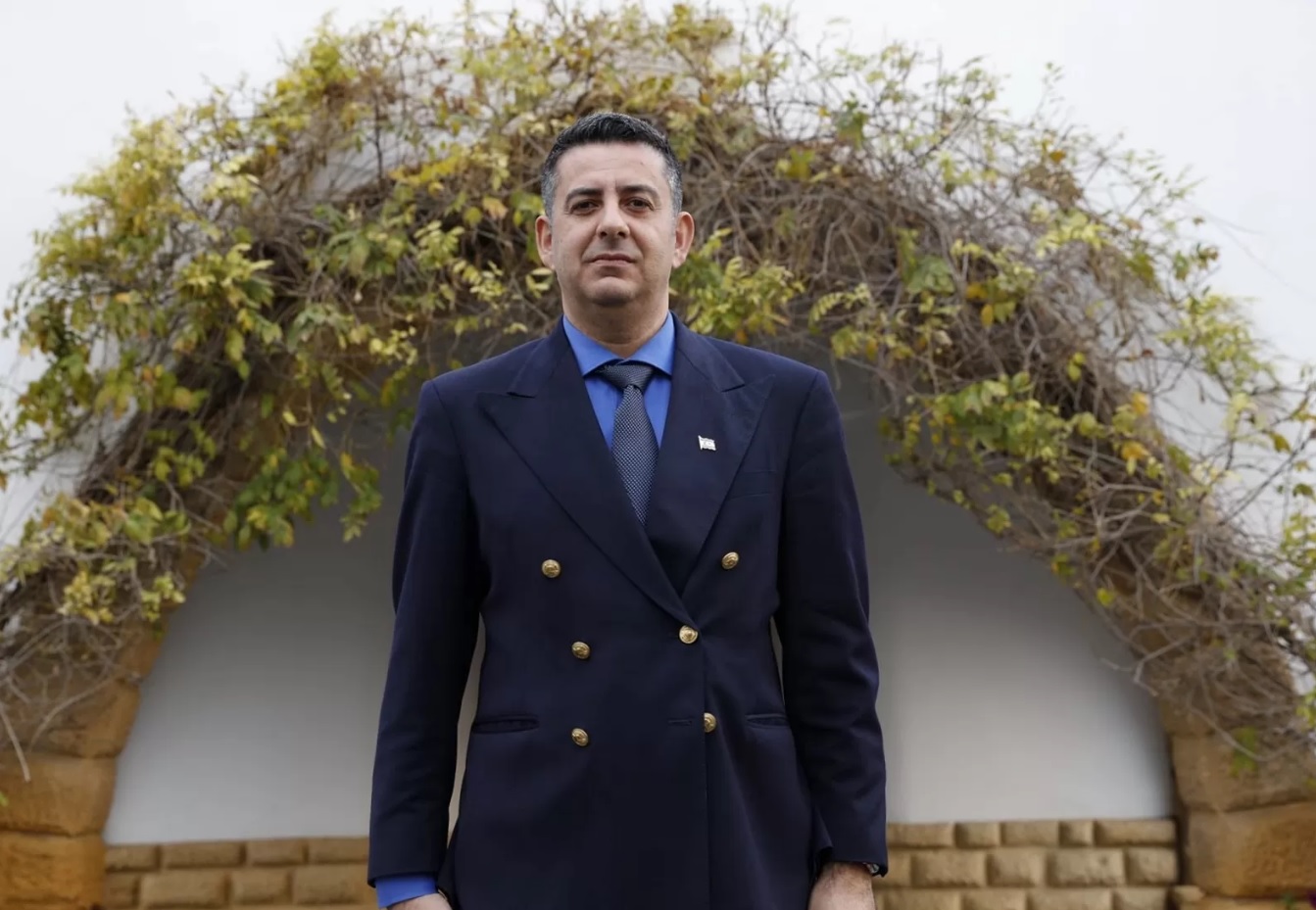
Prof. Dr. Hüseyin Işıksal: “Although Turkey is the state with the longest coastline in the Eastern Mediterranean, it is meant to be excluded from the geopolitical and hydrocarbon equation.
President of the TRNC Presidency International Relations Committee and Near East University Faculty of Economics and Administrative Sciences Faculty Member Prof. Dr. Hüseyin Işıksal spoke on the issue of jurisdictions in the Eastern Mediterranean and said, “Due to the Mediterranean’s semi-enclosed sea feature, you cannot exclude any state when determining maritime jurisdiction areas in the Eastern Mediterranean, according to international agreements. The delimitation of maritime jurisdictions should take place with the consent of all relevant states. In contrast, although Turkey is the state having the longest coastline in the Eastern Mediterranean, it is meant to be excluded from the geopolitical and hydrocarbon equation. Prof.Dr. Dr. Işıksal said, “According to Turkey’s theses, the TRNC also has a right in the maritime jurisdiction areas of the island of Cyprus. In this context, Turkey does not recognize the agreements between the Greek Cypriots-Egypt and the Greek Cypriots-Lebanon. The cases between Nicaragua-Colombia, Romania-Ukraine, Myanmar and Bangladesh at the International Court of Justice and the International Court of Law of the Sea are similar to the one between Turkey and Greece, and the decisions rendered in these cases support Turkey’s legal and political arguments.
Reminding that the TRNC was accepted as an Observer Member by the Organization of Turkish States this year, Prof. Dr. Hüseyin Işıksal emphasized that this development can be a basis for a just and sustainable solution in the Eastern Mediterranean and Cyprus.
Prof. Dr. Hüseyin Işıksal said, “The TRNC submitted a six-item proposal on cooperation to the Greek Cypriot Administration on July 1, 2022. The first clause of this includes the determination of hydrocarbon activities in offshore areas and the joint sharing of its revenue by a commission of equal number of representatives. When all the proposals are examined, it is seen that the proposals contain a win-win approach. Thus, peace on the island will also act as a catalyst for solving problems in the Eastern Mediterranean and the region.
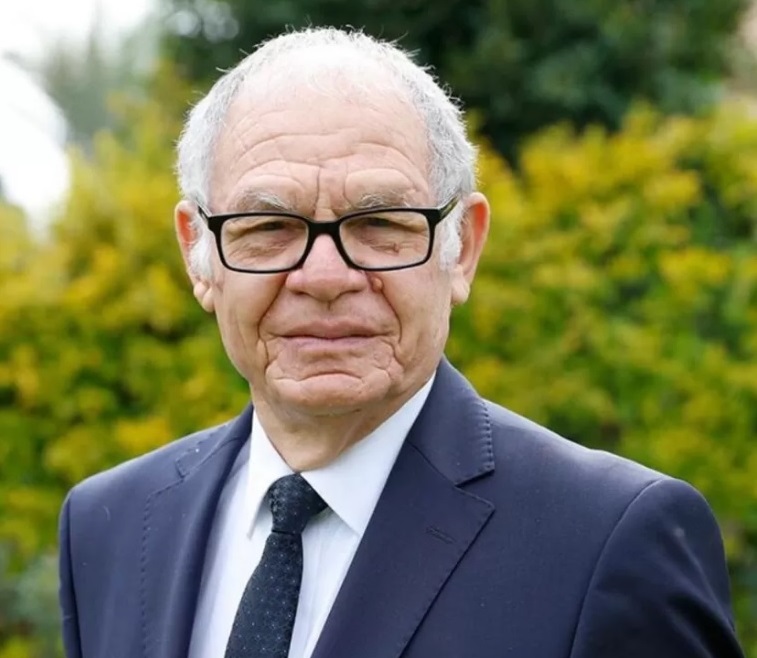
Ergun Olgun: “Although the UN Secretary-General also stated the issue of joint ownership of resources by both parties, the Greek Cypriot Administration claims that it is the sole owner of these resources.”
Ergun Olgun, Special Representative of the President of the TRNC, said, “Although the Turks and Greeks jointly established the Republic of Cyprus, the Greeks claimed that the island belongs to them, and this claim forms the basis of the Cyprus Problem. In this context, if this fundamental problem in Cyprus is not resolved and equal rights are not respected, the Cyprus problem will continue to exist and have a negative impact on the Eastern Mediterranean region. In Cyprus, there is a need for a solution to irregular migrants, environmental problems related to carbon dioxide emissions and energy problems that cannot wait any longer, which affect both sides.”
“The EU plans to convert energy sources to renewable energy by 2050. In this sense, firstly, by acting jointly, Eastern Mediterranean natural gas resources of Egypt, Israel and Cyprus can meet some of the EU’s energy needs, and secondly, Israel, Egypt, TRNC and Greek Cypriot Administration can connect solar energy to the EU’s electricity system by acting together. Of course, all this can be achieved with the cooperation of the institutions of Egypt, Israel, the TRNC and the Greek Cypriot Administration of Cyprus and with mutual trust. These issues include cooperation on the extraction of hydrocarbon resources to be mined in offshore areas and cooperation on solar energy resources as the joint owners of the hydrocarbon resources to be mined around the island are the Greek Cypriot Administration and the TRNC. Although the UN Secretary-General also stated the issue of joint ownership of resources by both parties, the Greek Cypriot Administration of Cyprus claims that it is the sole owner of these resources.”
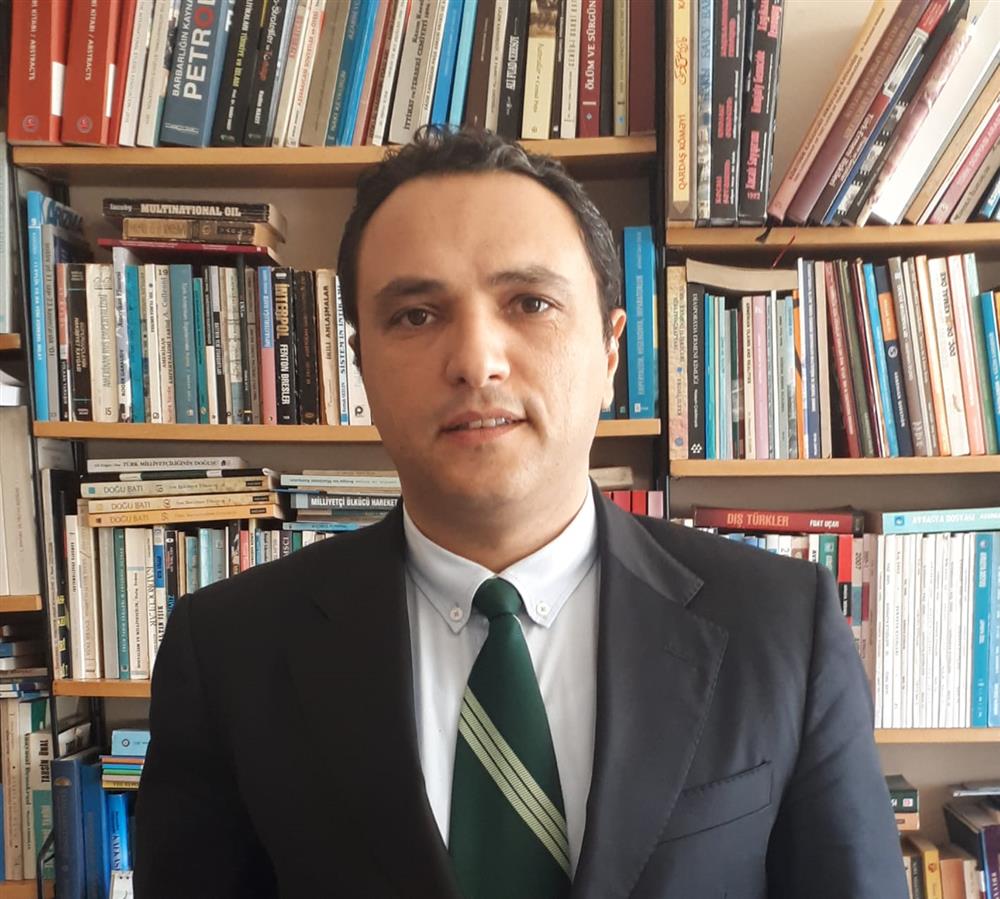
Prof. Dr. Yalçın Sarıkaya: “Anatolia is the ideal geography for transferring the rich natural gas resources located in the jurisdictions of Israel, Palestine and Lebanon in the Eastern Mediterranean to international markets.”
Giresun University Faculty of Economics and Administrative Sciences Lecturer Prof. Dr. Yalçın Sarıkaya, on the other hand, emphasized that there has not been a significant decline in the total value of hydrocarbon resources, and said that the Eastern Mediterranean and Caspian Basin gained importance due to the Russia-Ukraine war. Prof. Dr. Yalçın Sarıkaya said, “In 2018, the Caspian States solved their border problems; In 2020, Azerbaijan has ensured its territorial integrity. As a result, new cooperation opportunities have emerged between the states of the region. The full membership of Uzbekistan and Turkmenistan to the Organization of Turkic States has created a very strong line in the region. Safe and economical transportation of the Eastern Mediterranean resources will be possible with the articulation of the Eastern Mediterranean with this line.
“Anatolia is the most ideal geography for transferring the rich natural gas resources located in the jurisdictions of Israel, Palestine and Lebanon in the Eastern Mediterranean to international markets,” said Prof. Dr. Sarıkaya, and added; “Transferring Israeli and Egyptian gas from the Gulf of Iskenderun to the world market will give these states the opportunity to reach the EU market. Thus, Israel, which is the most important customer of Azeri oil, will represent the south of the Caspian-Mediterranean link.”
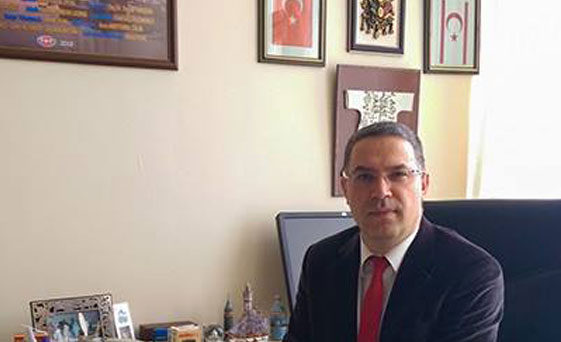
Prof. Dr. Soyalp Tamçelik: “We should not make the mistake of evaluating the problems encountered in the maritime jurisdictions only in terms of Southern Cyprus, TRNC and Greece.”
Ankara Hacı Bayram Veli University Faculty of Economics and Administrative Sciences Faculty Member Prof. Dr. Soyalp Tamçelik said, “Even though our interlocutors in the Cyprus issue are Southern Cyprus, Greece and England, the FOCUS (Middle East, Eastern Mediterranean and Cyprus.) doctrine is needed because other actors claim rights from the Eastern Mediterranean. Turkey is face to face with serious threats from Cyprus and its energy policy. Therefore, it would be more appropriate to combine these regions rather than separate them. Because it would be more meaningful to read Turkey’s only interests as regional.” Prof. Dr. Tamçelik also said, “Turkey has to diversify its foreign policy instruments and policy. If this is not done, events will inevitably evolve into uneasiness, threat, fear and trauma.” Prof. Dr. Soyalp Tamçelik further added; “We should not make the mistake of evaluating the problems encountered in the maritime jurisdictions only in terms of Southern Cyprus, TRNC and Greece. Terrestrial states in the Middle East also claim the sea mass in the Eastern Mediterranean. In this sense, the problem in the Middle East was transferred to the Eastern Mediterranean to some extent. The Eastern Mediterranean problem was to some extent Middle Easternized, expanded and to some extent the EU was also involved. For this reason, it would not be correct to read Turkish foreign policy solely through the Eastern Mediterranean and Cyprus.
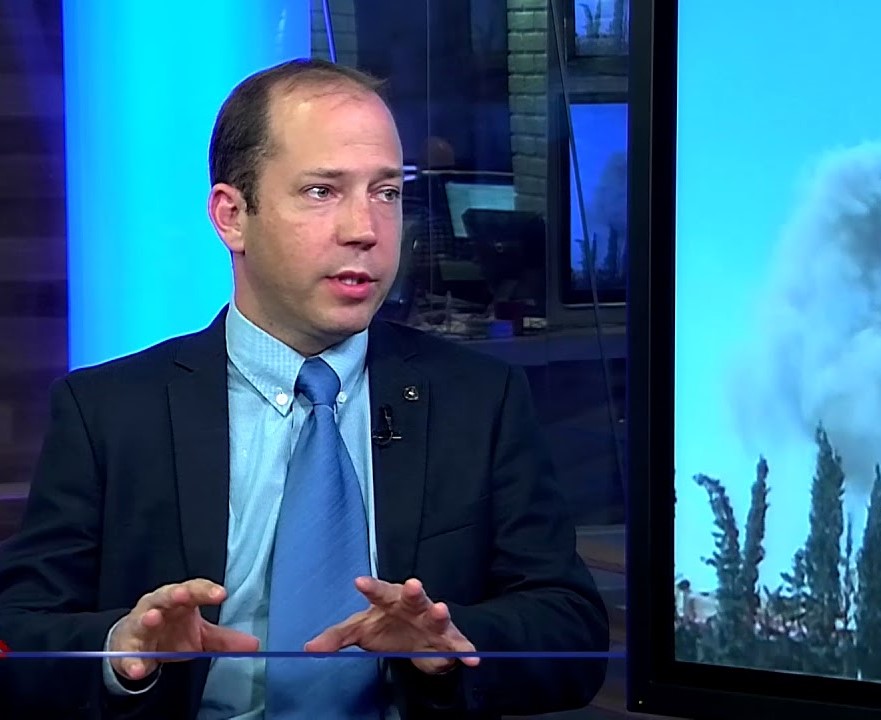
Dr. Nir Boms: “Sending additional gas to Israel via pipelines through the TRNC will create a win-win scenario.”
A member of Tel Aviv University in Israel and the Moshe Dayan Institute, Dr. Nir Boms talked about the maritime jurisdiction boundary agreement between Israel and Lebanon. Emphasizing that this agreement is a win-win deal, Dr. Boms commented on the agreement saying “The Lebanese and Israeli maritime jurisdiction border agreement has been a precursor to other peaceful agreements.”
On the other hand, Dr. Nir Boms, answered a question directed to him; “Do you think that in the near future, Israel will be able to negotiate with the TRNC about maritime jurisdiction areas by using the diplomacy technique it has with Lebanon?” He replied: “This is not a simple matter. Thus, negotiations on energy with the participation of not only the TRNC but also other stakeholders in the region will create a win-win result. Sending additional gas to Israel via pipelines through the TRNC will create a win-win scenario.”
Assist. Prof. Dr. Bülent Şenses: “Sharing Azerbaijani gas, Kazakhstan oil and grain with the Middle East may prevent possible sociopolitical disorders in this region. The TRNC is one of the most suitable addresses for the transfer of these resources to the Middle East.”
Near East University International Relations Department Retired Colonel, Assist. Prof. Dr. Bülent Şenses, on the other hand, commented on the energy balance in the Eastern Mediterranean through Russia. Touching on the Russia-Ukraine war, which significantly changed the balances in the region, Assist. Prof.. Dr. Bülent Şenses said, “It seems impossible for the Russian Federation to end the war without achieving its political goals. The same goes for Ukraine. For this reason, it can be predicted that the Russia-Ukraine war will not end in a short time. On the other hand, it should be expected that the Russian Federation will continue its blockade of Ukrainian ports throughout the war.”
In addition to these, Şenses said “Sharing Azerbaijani gas, Kazakhstan oil and grain with the Middle East may prevent possible sociopolitical irregularities in this region. The TRNC is one of the most suitable addresses for the transfer of these resources to the Middle East.” Assist. Prof. Dr. Bülent Şenses also said, “The economic and socio-political problems of the regional states can be reduced by transferring oil to Israel and Middle East states via classical pipelines and grain via pneumatic pipelines via TRNC.”
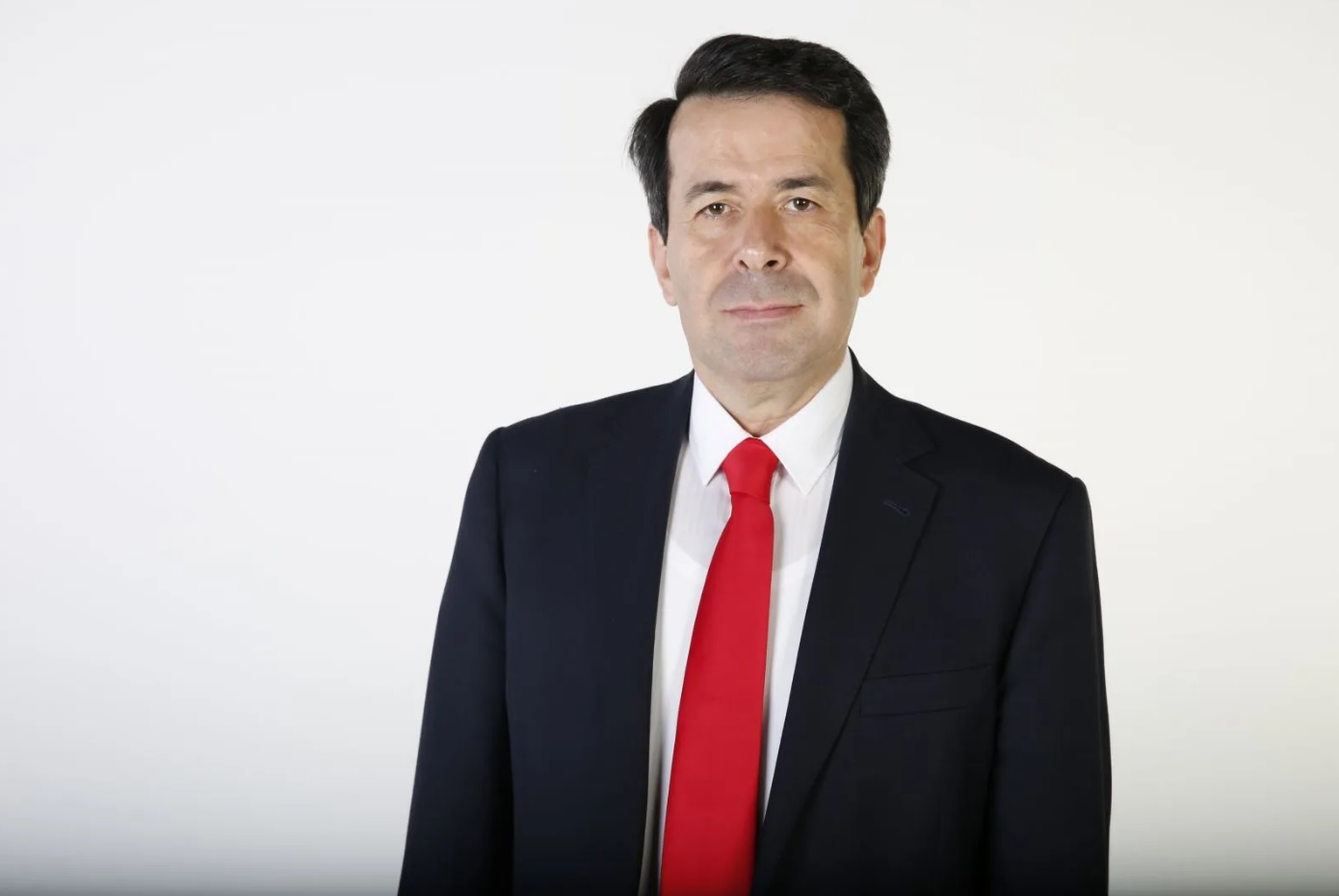
Prof. Dr. Hasan Ünal: “Even if Turkey-Egypt relations did not fully improve, Egypt took Turkish maritime jurisdiction areas into account while determining maritime jurisdiction areas. This is an important indicator.”
Professor at Maltepe University, Department of Political Science and International Relations and member of the TRNC Presidency International Relations Committee, Prof.Dr. Hasan Ünal, referring to Turkey-Egypt relations, said, “Even if Turkey-Egypt relations did not fully improve, Egypt took Turkish maritime jurisdiction areas into account while determining maritime jurisdiction areas. This is an important indicator. The easiest way of energy transfer in terms of Israel-Turkey relations is the Israel-Turkey pipeline.” Prof. Dr. Ünal further said, “Currently, Ankara has very good relations with the Russian Federation, NATO and the Turkic Republics. In addition, the Turkish army is currently in a very good condition in terms of combat experience. For this reason, Turkish foreign policy has become a good example in the multipolar world.”
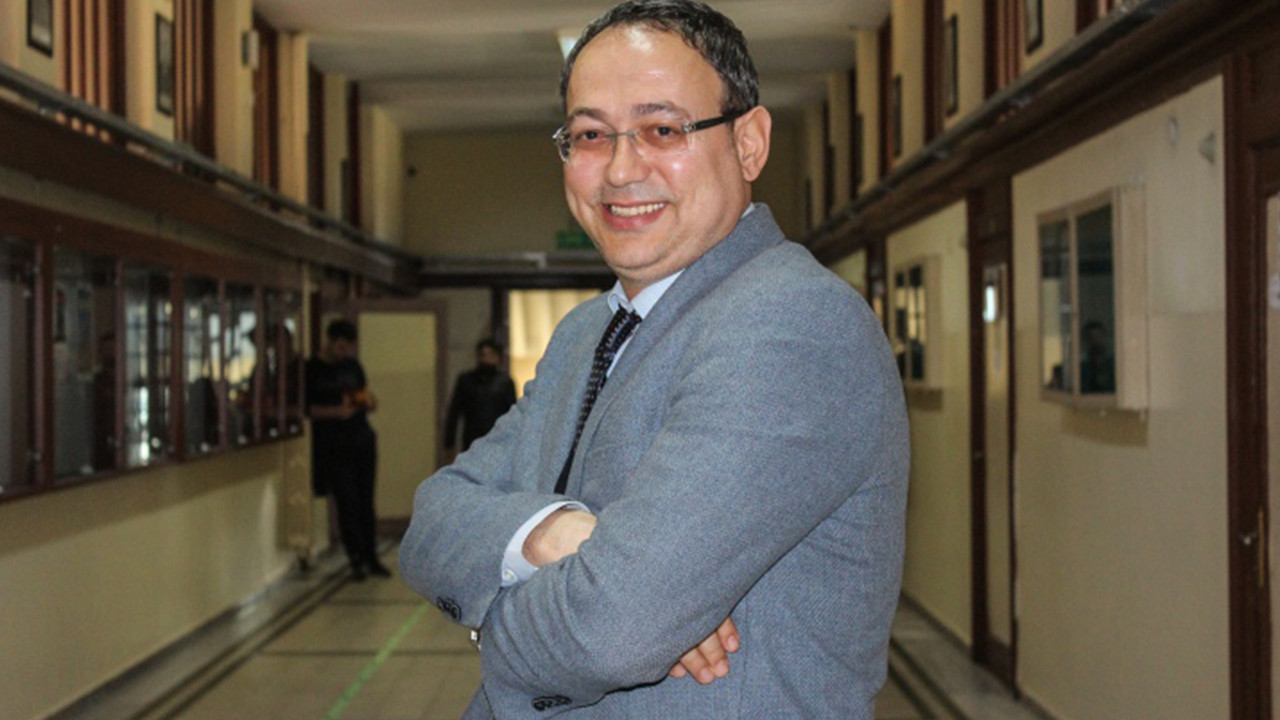
Prof. Dr. İlyas Topsakal: “Turkey and the Turkish Republics should implement deep-rooted strategies that can continue.”
Istanbul University, Faculty of Literature, Head of the Department of General Turkish History Prof. Dr. İlyas Topsakal started his speech at the conference by saying “Today, we will discuss how the countries around the Eastern Mediterranean can meet, while exchanging information about the place of the Eastern Mediterranean in the changing energy sector in the world.”
Stating that the world is heading towards a great disorder, Prof. Dr. İlyas Topsakal said, “We can follow this disorder from the security strategy documents published by the big states every year. Turkey also needs to create its own strategy in 2023.” Prof. Dr. İlyas Topsakal talked about his studies on this subject and said, “We have carried out studies on ‘Turkey’s Grand Strategy’ and ‘Turkish Generation’ on this subject.”
Stating that the Eastern Mediterranean issue is an important red area for Turkey in the new world, Prof. Dr. Topsakal said, “I think Turkey and the Turkic Republics should implement deep-rooted strategies that can continue.”
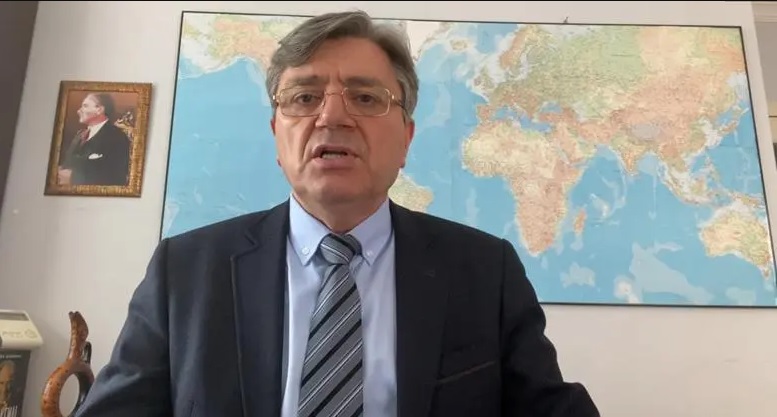
Dursun Yıldız: “The effects of climate change in the Eastern Mediterranean and the Middle East converge at a certain point and difficulties arise such as political tensions, social inequalities and limited access to resources.”
Dursun Yıldız, Founding Member and President of the Water Policies Association, made a presentation titled “Increasing water security problems in the Eastern Mediterranean” at the conference. Yıldız said; “The exploration and exploitation of hydrocarbon resources faces some key challenges, such as climate change and water security, and changing regional geopolitical dynamics.”
Stating that the balances in areas such as climate, geopolitics, hydropolitics, energy policy and security architecture in the Eastern Mediterranean are changing day by day, Dursun Yıldız said, “The Eastern Mediterranean is a region that warms up faster than other regions in the world and is warmer in terms of climate. The effects of climate change in the eastern Mediterranean and the Middle East converge, creating challenges such as political tensions, social inequalities and limited access to resources.”
Stating that the water problem has always been a constant problem in the history of the Eastern Mediterranean, Dursun Yıldız said, “It is estimated that the temperature increase in this region is 20 percent higher than the world average. With the increasing consumption, under the effects of climate change, water security and food security problems have also started to appear in higher rates.”
Dr. Amit Mor: “Israel does not have enough gas to sell to Turkey.”
Another Israeli energy expert at the conference, Dr. Amit Mor made important statements about Israel’s role in the region. Pointing out that the agreement signed between Lebanon and Israel was made thanks to the USA, Eco Energy’s CEO, Dr. Mor said that they will soon start gas sales to Lebanon. Stating that they cannot sell gas to Turkey, Dr. Mor explained that the reason for this was that Israel did not have enough gas.
Retired Brigadier General Dr. Özgür Tör: “The problems in the Eastern Mediterranean need to be resolved not only for the extraction of energy, but also for the safe transfer of the energy extracted from here.”
Retired Brigadier General Dr. Özgür Tör, on the other hand, emphasized the importance of a fair solution in the Eastern Mediterranean and said, “The problems in the Eastern Mediterranean must be solved not only for the extraction of energy, but also for the safe transfer of the energy extracted from here. For this reason, some countries also need to focus on fairness and technical issues. We need to explain this very well to our colleagues in the west.”